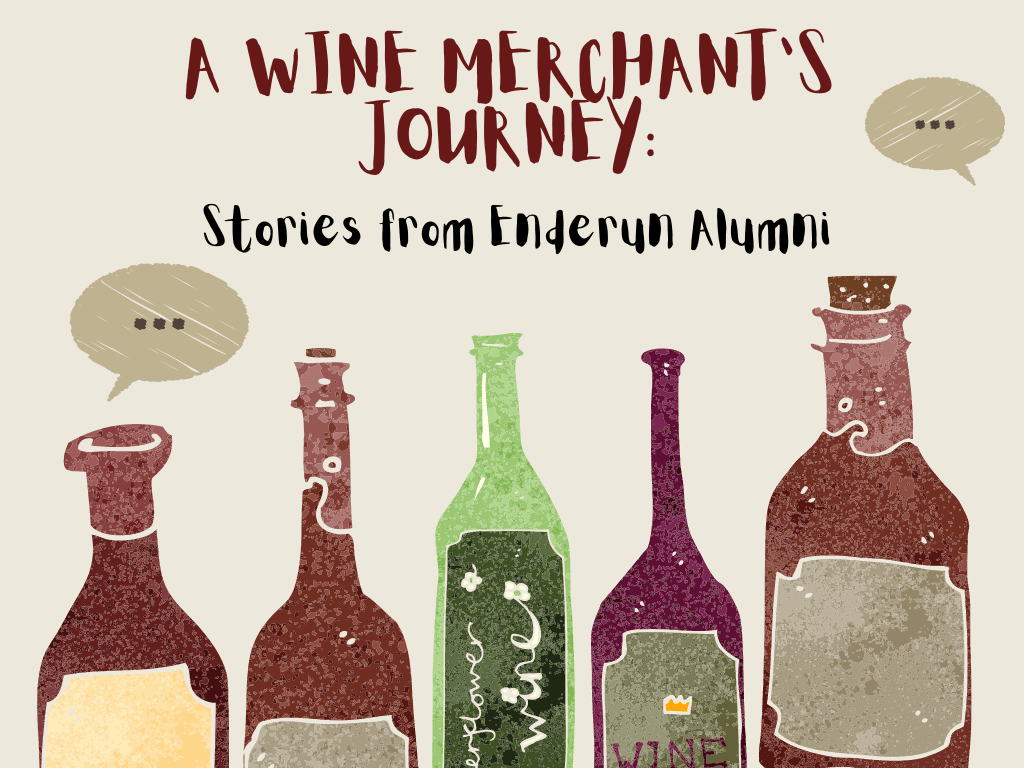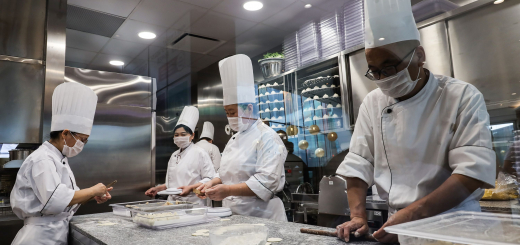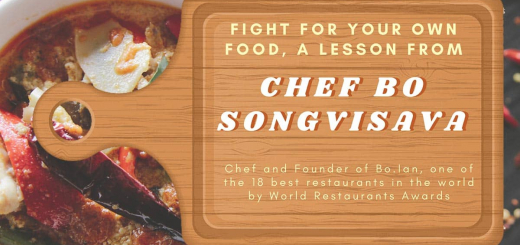A Wine Merchant’s Journey: Stories from Enderun Alumni

Last February 22, 2021, the Enderun Food and Wine Society held a panel discussion called “EFWS Industry Talks: Career Focus: Jobs in the Wine Industry.” Hosted by Mr. Thirdy Ramirez, President of EFWS, and moderated by Ms. Chie Gatchalian of Five and a Half Twists. The panel discussion featured Enderun alumni, namely Mr. Pax Tabhan of OENO Village Wine Cellar, Mr. Diego Virata of AWC, Ms. Nicollette Ang of S&R Membership Shopping, Ms. Yvette Belleza of CoolVines Wines & Spirits, Ms. Mikee Manahan of Estate Wine, and Mr. Jigger League of Origine Philippines. Each of the alumni was asked intriguing questions that ranged from their journey towards their current career, the challenges they faced along the way, to the future of the wine industry in the Philippines.
Before the discussion, the moderator and the panelists began with a short introduction to who they are and where they work now. For moderator Ms. Gatchalian, she started her journey late but did so beginning with WSET Education courses at Enderun Colleges. She then further pursued her studies to eventually becoming a WSET Level 3 holder as well as a WSET educator.
Panelist Ms. Manahan shared that she has been working with Estate Wine for two years as a wine merchant. Aside from that, she explained that besides wholesale and retail, Estate Wine also features virtual classes and webinars.
As for Mr. Virata, he shared that his career started in the kitchen but eventually shifted gears towards the wine industry due to the desire to apply his knowledge in the fine dining scene. He shared that he had no background about wines aside from the “Beverage 101” class that he took in college. He has worked as a wine merchant for four years for AWC, a store that specializes in French and Spanish wines for hundreds of restaurants.
Mr. League works for Origine Philippines, an e-commerce company that specializes in selling biodynamic sustainable wines that come from 20 major wine-growing regions in France and Italy.
For the next panelist, Mr. Tabhan shared that he started his journey in the industry as a Bar Supervisor for K-Pub BBQ until he reached a Sommelier position in Shangri-La which was the last F&B job he had before joining the corporate side of wines. He’s working with OENO Village Wine Cellar, an online store that also has wine finders and advisers to help customers in choosing the right wine for them.
Next was Ms. Belleza, who shared that she pursued a career in the wine industry due to curiosity from the blind tasting in her beverage classes and the movies that she was inspired with. She works in CoolVines Wines and Spirits in New Jersey, USA. CoolVines specializes in craft spirits, smaller farm-produced wines, and craft beer that supports small families and growers.
Lastly, Ms. Ang shared her experience of being rejected by Wine Warehouse and how this further pushed her and made her more determined. This led to her being able to pass her second interview with the same company where she eventually landed her first job in the industry. Afterward, she ventured out to sales and went to the service industry as a sommelier in Solaire Resorts & Casino and then began working as a buyer for S&R Membership Shopping
Still touching on the topic of their journey towards the wine industry, each of the panelists was asked about what led them to specialize in wines despite the Philippines not having a robust wine drinking culture. For Ms. Manahan, she shared that she often volunteered for events when she was still in college. Aside from that, she also took Advanced Wine classes that helped her develop her love and appreciation for wines. She further explained the beauty of studying wines by comparing the difference of growing Cabernet Sauvignon from the soil in California to Bordeaux: how they are the same grape but they are completely different in taste. She stated that “drinking wine is like meeting a person for the first time,” which was the reason she felt that this was the right industry for her.
Next up was Mr. Tabhan, who started his journey with wine while working for Wolfgang Steakhouse where he was assigned to handle the wines since no one at the time wanted to. He shared the moment that got him interested in the industry was when he was pouring wines for the table and someone doubted his authority in handling wines since he did not have a WSET certification. Because he felt challenged at that moment, it motivated him to pursue his studies even further and to prove the skeptics wrong about their notions. From then on, he kept moving forward until he reached his current status.
The next panelist was Mr. League, who shared that he started his love for wines at a young age and his interest in wines was further accelerated by Ms. Bel Castro with Beverage Management class. Aside from that, he shared that taking WSET Level 2, attending wine tastings and events helped him gain new insights into the industry. During this quarantine, he tried applying for various wine retailers to make use of this opportunity to apply what he had learned in school which landed him a job at Origine Philippines.
As for Ms. Belleza, shared that she first started when she was 18 years old and she “wanted to be drunk as fast as possible”, which is why she took the Beverage Management course. As she shared earlier, during a wine and cheese tasting in her class, she realized her talent in detecting tasting notes and watching wine-related movies helped her gain knowledge of wines. Looking back at her high school, a professor gave her a piece of advice in terms of choosing a career which was to find three things that you love to do. For her, she wanted a career that lets her travel, drink, and learn. When applying for an internship, she strategically chose a wine culture country such as Portugal and Spain to be able to immerse herself with the culture and the lifestyle of drinking rather than just getting drunk. Afterward, she went on the Michelin route and applied to top restaurants such as 11th Madison Park and NoMad Hotel. From there, she found her niche with CoolVines in New Jersey. She shared her experience working with CoolVines and her desire to help people to bridge the gap between their wine preferences and act as their guide to that journey. It also brings her joy when people tell her that the wine she recommended was fantastic.
Moving to Mr. Virata, he said that he got into wines because of his fondness for eating. He started his wine journey by taking WSET Level 2 in Enderun Colleges, which provided him with foundational knowledge. He shared that with his work now, which involves pairing wines with various dishes, he liked working with chefs because he can practice his culinary background without being behind the kitchen.
The last panelist to share their journey was Ms. Ang. She shared that when she started her wine journey in 2009-2010 it was not yet considered a big industry, and people hardly knew about wines. She pointed out the similarity to Ms. Belleza’s experience, which was the joy of being able to recommend to people what wine to drink. Aside from that, she further explains the nature of S&R and being in high volume retail and that being able to connect with other brands in terms of brand building is something that she looks forward to.
After the introduction, then shifted the moderator asking specific questions to each panelist, focusing more on the challenges each panelist had experienced being in the wine industry. Ms. Gatchalian asked Mr. Tabhan what were the specific challenges he had encountered and how did he turn them around. He shared that working on both the F&B and export side, he saw differences in the challenges between the two. On the F&B side, it includes handling certain guests, especially older, demanding customers and know-it-alls. He stated that in order to turn it around, “You need to make them feel like they’re the expert”. He further explained that since you’re young you can make these people mentor you and gain new insights about the wine. You just need to lower down your pride and accept it regardless of the distinction you have. Another challenge would be wine corkage because it can affect the reputation of the restaurant as well as guest relations.
Moving to the export side, he shared that he becomes the “bad guy” in the eyes of the exporter because of his demands in amount and volume. But in order to turn that situation around, you need to be the good guy when you build those relationships and get them to trust you. He stated that “it has nothing to do with wine knowledge but it’s in relationship-building skills.” Lastly, Mr. Tabhan shared that aside from improving your wine knowledge, you also need to work on your networking skills. For him, he found this as a challenge since he considered himself an introvert growing up. It might be a challenge to network effectively, but it is a skill that is needed to succeed in this industry.
Moving to another topic, Ms. Gatchalian asked a question for Ms. Manahan and Ms. Ang, which was “how do you sell wines to Pinoys?” Starting with Ms. Manahan, she started by sharing that her company shifted its focus from wholesale to the retail side. Within the retail side, they started to focus more on their private clientele. Going by the preferences of Filipino customers, it is common for them to gravitate towards sweet and fruity flavors, which is where they tend to base their products. Similar to Mr. Tabhan’s experience, she shared her experience in dealing with more knowledgeable customers and that research is vital in order to cater to these kinds of customers. Other than selling wines, Ms. Manahan said that her company has been developing webinars for companies to impart the knowledge of making and drinking wines, and they’re also bringing winemakers to provide detailed insights on wine production. She explained that they are not just selling a product but the experience itself.
As for Ms. Ang, she provided her insight starting with the struggle of the mix and match of entry-level and high-end products. She explained that S&R has two target markets which were consumer membership and business membership. These markets became the basis for their assortment of whether it is dedicated to volume (for business membership) or the end consumers (consumer membership). Ms. Ang also emphasized the importance of educating the consumers and she shared that S&R does this by putting fact tags that indicate the region or country where the wine originated from and tasting notes because they’re taking into account that some customers are not wine drinkers. Lastly, they wanted to shift the perception of customers towards S&R and their ability to sell affordable but good-value wines.
Ms. Gatchalian asked Ms. Belleza a question regarding the challenges of being a young Asian female in a male-dominated industry and how she made it work. She replied that the challenge was to break the stigma of young people not knowing wines and also the issue of not being taken seriously. Being the only female and person of color, she saw this as an advantage because she was able to provide fresh inspiration and representation of the younger generations and their wine drinking preferences. She noted the attending trade events also provided her with an opportunity to listen to the experts in what they have to say and having the connections in your social media is important to “get your foot out in the door”. She also states that it was a “never-ending struggle” since it’s going to be different for everyone else and that growing up in a non-wine drinking country is already an added challenge. These challenges may make you an underdog, but there is a community that can help you get through it.
One of the last questions, which was directed to Mr. Virata was about the future of the Philippine fine wine market and its challenges. Mr. Virata started by sharing that the fine wine market in the Philippines is starting to become more accessible due to brands such as AWC having a broad selection and portfolio of wines. Providing insights on the current situation of the market, only 1% of the Philippines drink wine and it is a niche market for those who like to spend. He shared his experience in selling in this market and his advice was to “ask older people for advice.” Aside from this, he shared that another challenge would be transforming the habits of the younger generation to try out these kinds of wines. Lastly, he stated when someone opened a special bottle for you, “you should be thankful for them” since it is only a one-time opportunity. Aside from that, connecting with customers through wine is one of the beauty’s that he considers in his job.
Moving to the last speaker, being asked about the future of the youth as well as the rise of biodynamic wines in the Philippines. Mr. League shared that Origine Philippines is gearing towards the biodynamic and sustainable route. He further shares that Filipinos are starting to enjoy sulfite-free, all-natural with no added yeast wines. As for the status of the current market, the leading age group for their wines is people in their thirties to forties. They are trying to market to the younger generation which is hard because wines take a bit more time to enjoy and understand. However, Filipinos are much more open now to trying out these kinds of wines, and that in 5-10 years from now, he sees more people will be enjoying this kind of wine.
To sum up, the discussion with the Enderun alumni provided an exciting and informative view of the careers within the wine industry and it was such a huge learning experience to hear their journeys and challenges in this competitive industry. Aside from that, it gives light to the importance of relentless learning as Ms. Bel Castro mentioned. Hearing from these professionals further shows that going into the wine industry does not limit you to just becoming a waiter or a sommelier. Having wine knowledge can be useful in many different ways and can offer a variety of jobs. These panelist’s stories and experiences also further prove the capability we Filipinos have in succeeding in the world of wines. As Ms. Gatchalian said, “We may not be wine natives, but we know our stuff. There is a place for Pinoys in this industry.”





